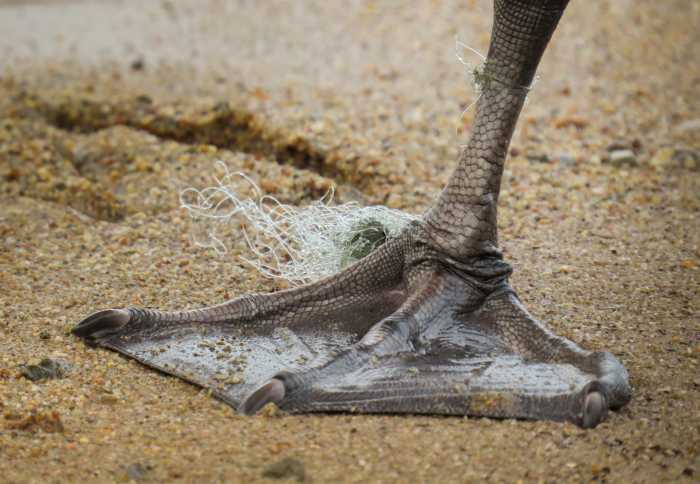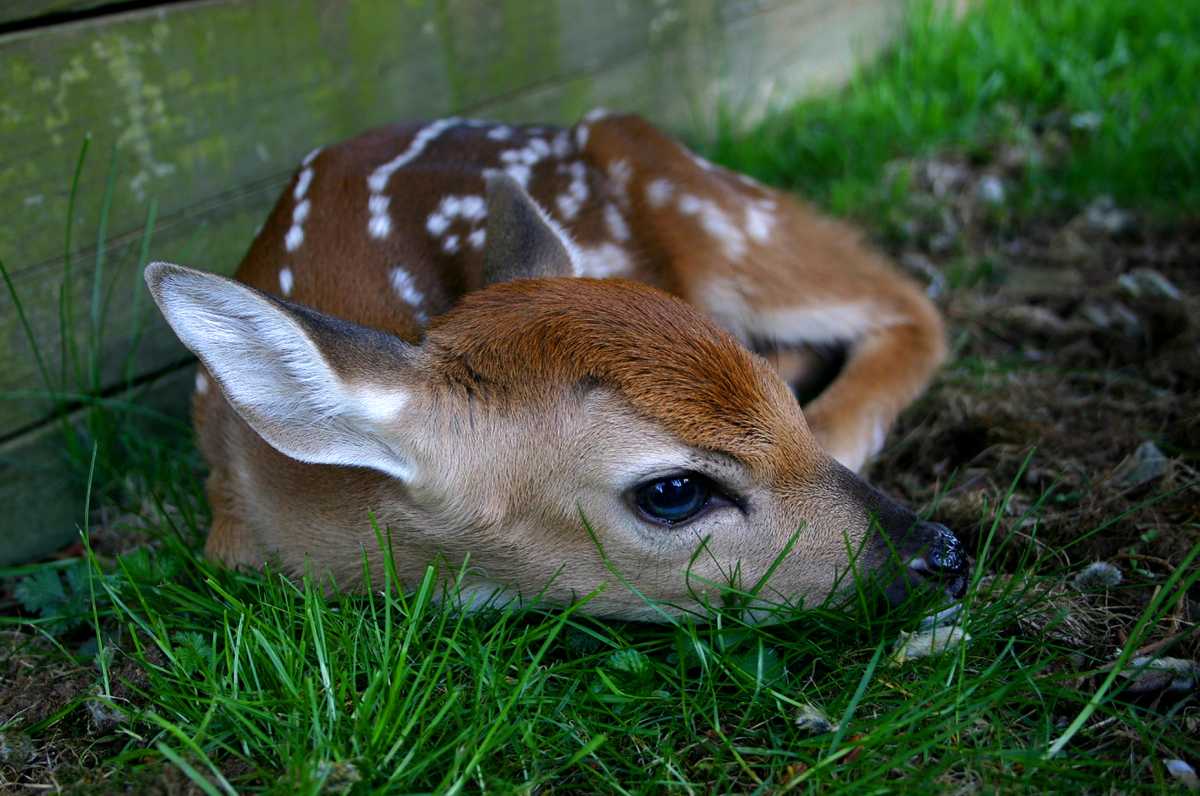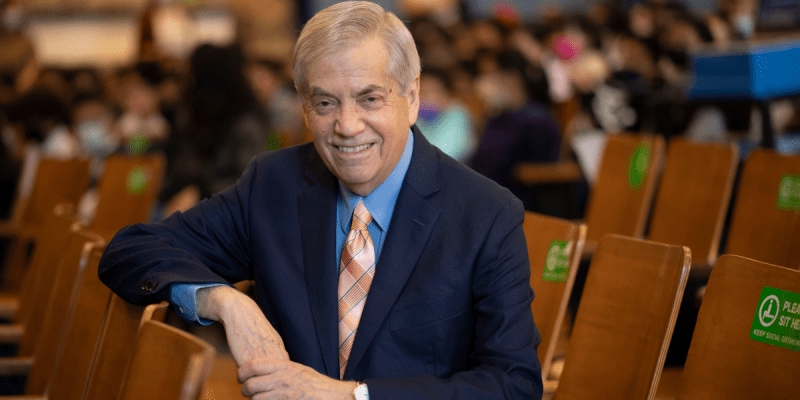Lifeguards are trained to save the lives of human swimmers. Still, on Fire Island, one Dunewood lifeguard recently went above and beyond by helping to rescue two baby animals during a single August 5 shift.
The lucky young critters saved by the lifeguard and her compatriots were a white-tailed deer fawn that fell off a dock and a young swan tangled in fishing line.
The lifeguard in question is Karley Kreuscher, a 19-year-old Bryant University student serving as a lifeguard for her third summer on Fire Island, and resident of East Islip. Her efforts, along with those of other quick-thinking community members who also assisted, rescued these two young animals in their time of need.
“It wasn’t just a one-person job done by me; it was the community,” Kreuscher said when asked about the two wildlife rescues. “It was a team effort.”
Kreuscher was sitting with a coworker near the Dunewood Bay Beach lifeguard chair when she first heard people shouting about something falling into the water from the nearby dock. By the time she got over to the dock to investigate the commotion, a group of good Samaritans had already pulled the baby deer out of the water. The animal was so young that it could barely even walk yet, but the confused baby was still attempting to follow people around. Kreuscher took charge, telling people not to touch the fawn and calling various wildlife centers to seek advice on handling the situation.
She was informed by one of these centers that their organization could not help the deer. They also informed her that it is normal for white-tailed deer mothers to leave fawns unattended for hours, and the best course of action was to keep the animal away from the water and wait.
“I felt bad because it was so tiny, and it was still going near the water. It was like it didn’t know what to do, and it was like falling on its face in the sand. Everyone was kind of surrounding it,” Kreuscher recounted.
After she got the public to leave the baby deer alone, it started following her, so she led it back to a nearby grassy area, where it lay down. She then returned to the lifeguard stand and was relieved to hear a distant yell that the baby’s mother had returned. Unfortunately, the deer’s mom disappeared again as quickly as she had reappeared, and an hour later, her baby fell off the dock again.
This time, Kreuscher rescued the fawn herself, getting into the water and picking it up to return the fawn to land. The animal was now attached to the lifeguard and refused to stop following her. After another call to the wildlife center for further advice, the lifeguards allowed the baby to sit with them at the stand. “People are coming around, asking about it, and I’m just telling them, like this is all we can do, just keep it away from the water, and to make sure it doesn’t drown or get hurt, and the mother will come back eventually,” Kreuscher recounted.
Eventually, the fawn left on its own.
Just as Kreuscher was returning to the lifeguard stand, she was informed that a second animal needed help. A juvenile swan—not particularly small, but still graced with youthful grey plumage—was tangled in fishing line.
The animal approached the shore and was trying to free itself without much luck.

So, Kreuscher and three beachgoers sprang into action. One woman wrapped a towel over the bird’s head to keep it calm, a man brought scissors and attempted to cut the fishing line before allowing Kreuscher to take over, and a third woman talked everyone else through the rescue. When asked the names of these other rescuers, Kreuscher said that she did not recall them.
The fishing line was tightly wound around the bird’s legs, connecting them and leaving the bird unable to paddle. There were two layers of fishing line on one leg and three or four on the other leg, and the predicament left a “pretty deep cut” in one of the young swan’s legs. Kreuscher said of cutting the swan free, “I was trying just to be really gentle with it,” and added, “I was cutting very, very carefully,” “layer by layer,” because the wire was so tightly wound around the animal’s legs that a wrong move would make the cut deeper. As the humans tried to free the swan, its family watched from the water, seemingly understanding that the people were trying to help, according to Kreuscher’s observations. After about 10 minutes, the swan was cut free, and the towel was removed from its head. The bird then re-entered the Great South Bay and returned to its family, and together they all swam off.
“It was definitely a learning experience,” Kreuscher said of her wildlife rescue day. “If something like that happens again, I’ll be more prepared.”
The lifeguard also expressed gratitude to the community.
“It was just nice to see that everyone around also cared.”































